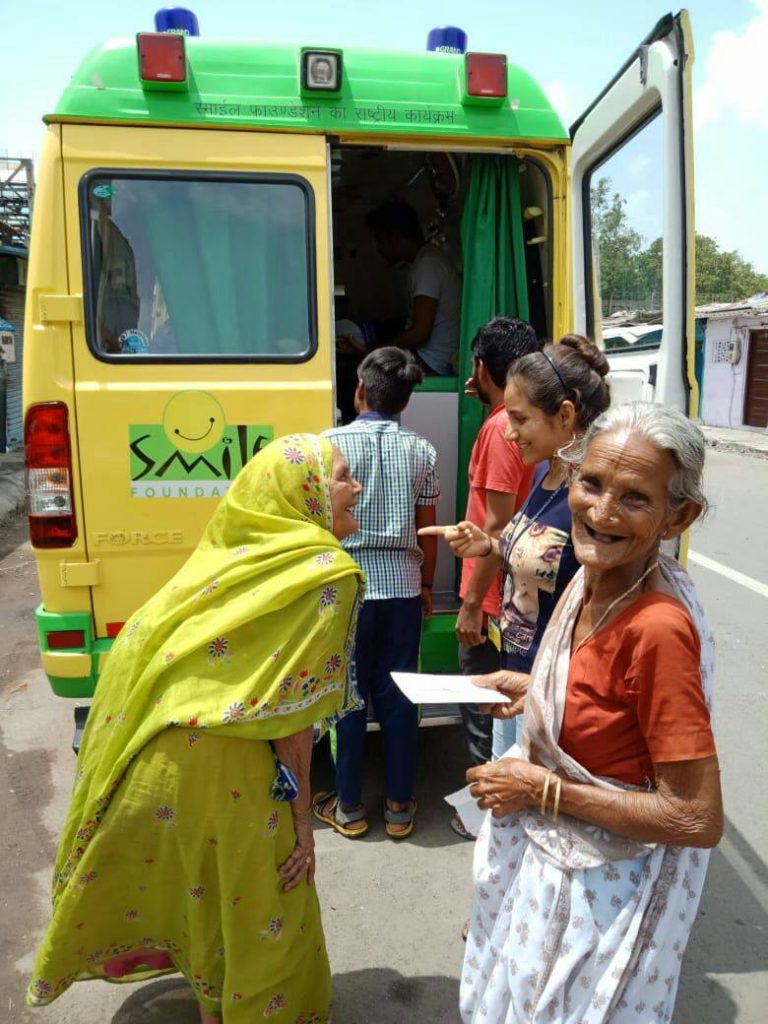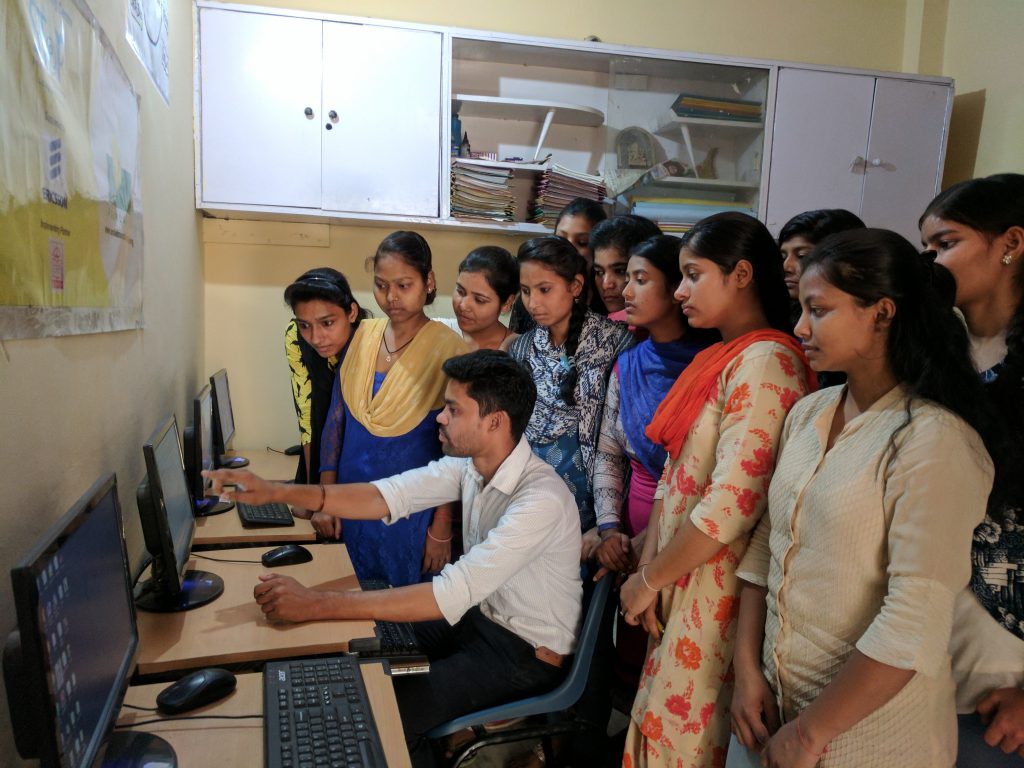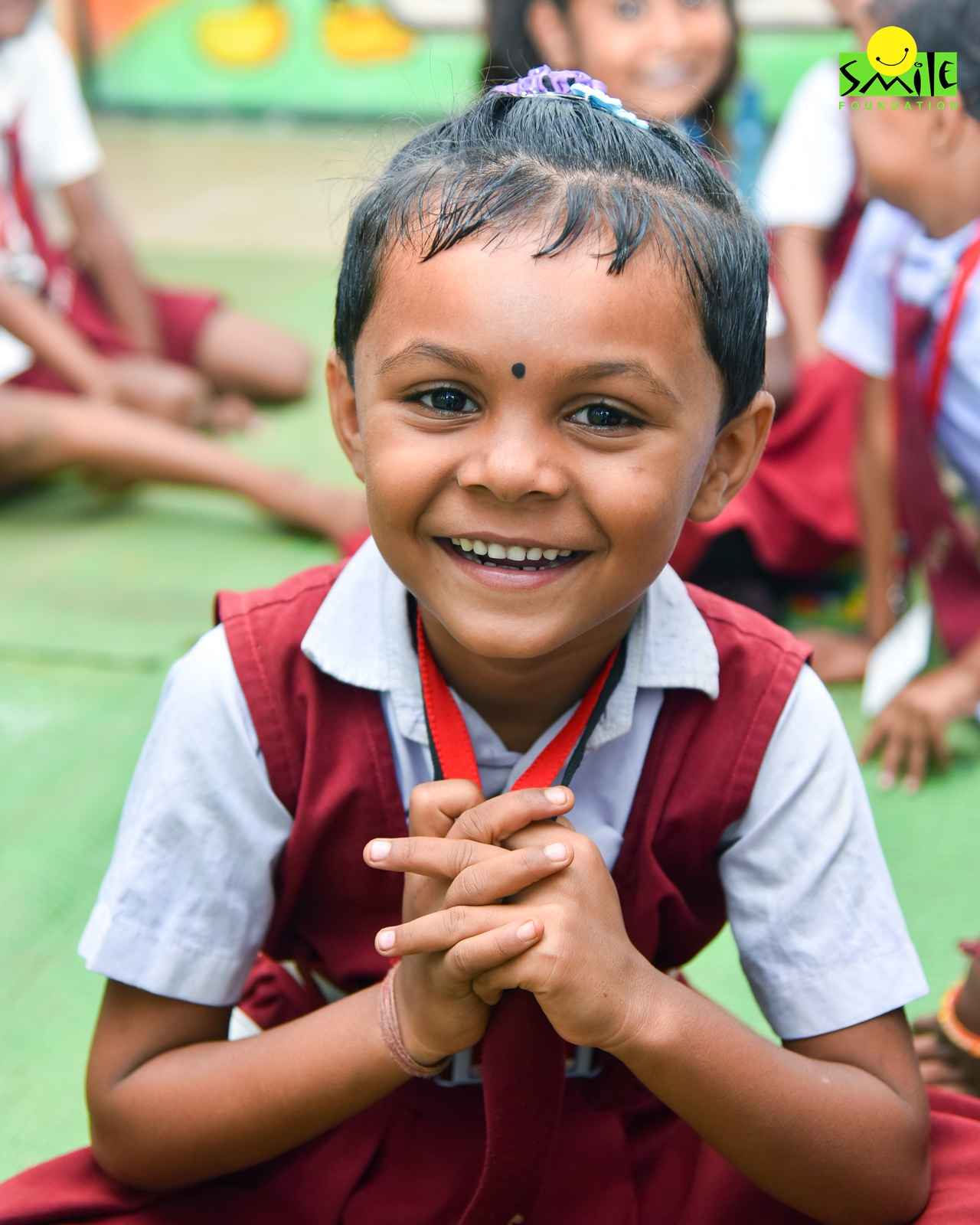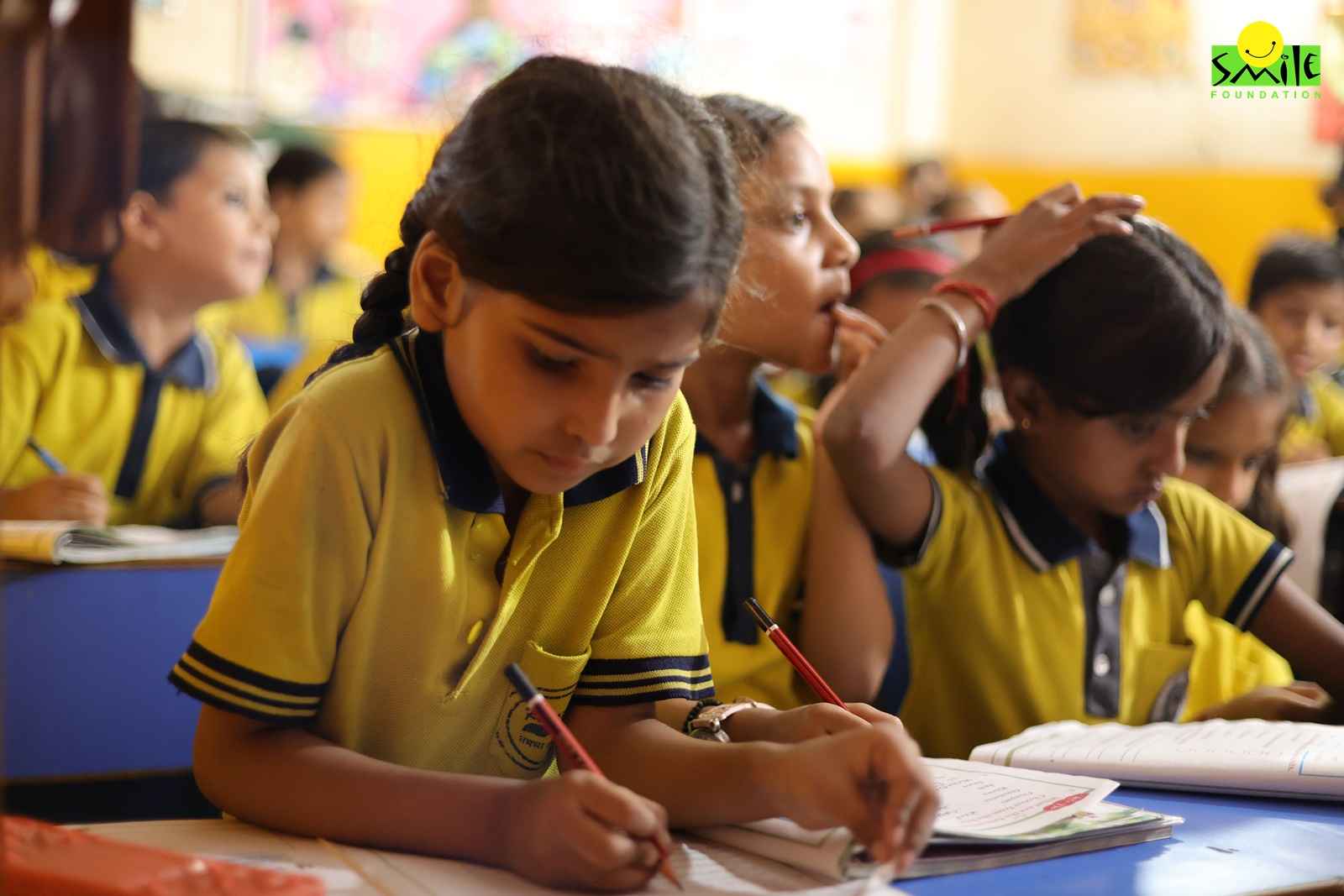Healthcare is important because it directly impacts the well-being and quality of life of individuals and communities. Access to proper healthcare services ensures timely diagnosis, treatment, and prevention of illnesses, which in turn leads to improved health outcomes, increased life expectancy, and overall socio-economic development. Rural healthcare is a challenge that needs a different approach and we are here to discuss it.
Significance of Healthcare in Rural India
- Health Disparities and Access Challenges: Rural areas in India face significant health disparities compared to urban regions. Limited access to healthcare facilities, medical professionals, and diagnostic services exacerbates these disparities. Many remote villages lack even basic healthcare centers, forcing residents to travel long distances to seek medical help. This lack of accessibility can lead to delayed treatments, worsening health conditions, and even fatalities in critical cases.
- Maternal and Child Health: Healthcare is particularly crucial for maternal and child health in rural India. Access to prenatal care, skilled birth attendants, immunizations, and postnatal care significantly impacts maternal and child mortality rates. Lack of proper healthcare during pregnancy and childbirth can lead to complications, endangering both the mother and the baby. Adequate healthcare interventions are essential to ensure safe pregnancies and healthy childhoods.
- Preventable Diseases and Health Education: Rural communities often suffer from preventable diseases due to poor hygiene practices, lack of clean water, and inadequate sanitation facilities. Health education plays a vital role in raising awareness about proper sanitation, hygiene, and nutrition. Healthcare initiatives in rural areas can incorporate health education to empower residents with knowledge about disease prevention and the importance of adopting healthy habits.
- Agricultural Health and Occupational Hazards: Agriculture is a primary livelihood source in rural India. However, it exposes individuals to various occupational hazards, such as injuries from farm machinery and exposure to pesticides. Healthcare services are essential to address these specific health risks faced by farmers and agricultural laborers. Immediate medical attention can help mitigate the consequences of accidents and provide guidance on safe farming practices.
Smile Foundation recognizes the importance of healthcare and has taken several initiatives to address healthcare challenges, particularly for underserved populations in India. Some of the key steps taken by the Smile Foundation through its healthcare programme include:
Mobile Healthcare Units
Smile Foundation operates Mobile Healthcare Units (MHUs) equipped with medical professionals and necessary equipment. These units are specially designed to reach remote and underserved areas where access to healthcare is limited. MHUs provide primary healthcare services, including medical check-ups, vaccinations, basic treatments, and health education. These units are vital in bringing healthcare directly to the doorsteps of communities that lack nearby medical facilities.
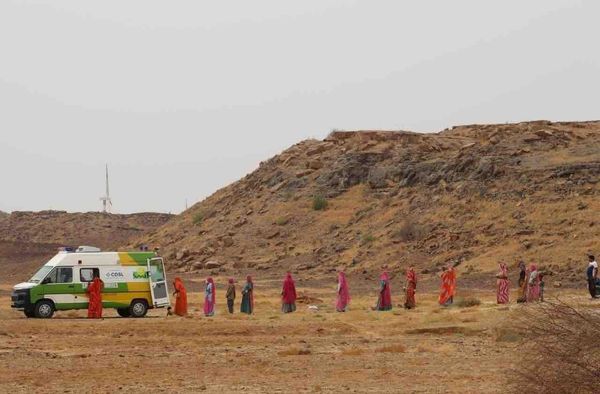
Nestled in remote neighborhoods, the remote population had to endure arduous journeys to access medical help. With the support of thoughtful corporate and individual donors, the Smile on Wheels (SoW) initiative is a lifeline that offers preventive, healing, and nurturing health services right at their doorstep.
Every day, the SoW mobile units embark on a journey of quality healthcare, visiting these communities with vital health services that encompass more than just medical aid. Conducting OPD sessions, diagnoses, distributing essential medicines, and ensuring seamless referrals. Together, we’re ensuring that no one is left behind when it comes to healthcare.
Telemedicine
Smile Foundation’s telemedicine initiative utilizes technology to bridge the gap between remote populations and specialized medical expertise. Telemedicine involves connecting patients with doctors through digital platforms, allowing consultations, diagnoses, and treatment recommendations to be conducted remotely. This is especially crucial for areas with limited access to doctors, enabling timely medical advice and reducing the need for patients to travel long distances for healthcare.
Smile Foundation has successfully established ten e-Arogya Clinics, a collaborative effort with the health department of Nuh and our valued corporate partner. This initiative aims to serve a significant beneficiary group of a million people.
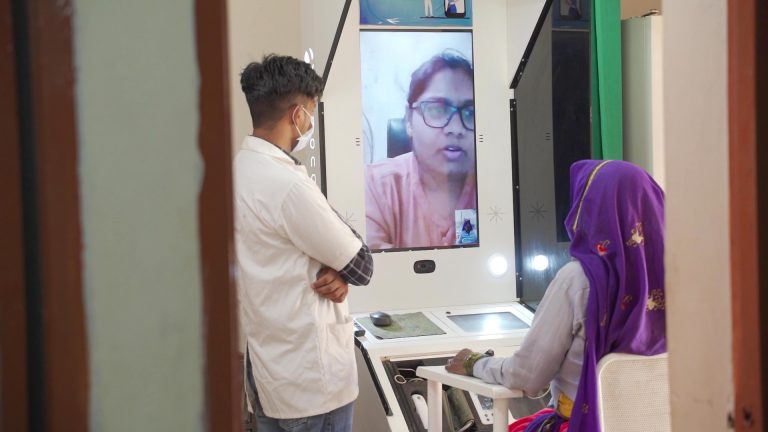
These clinics offer virtual consultations with both general physicians and specialist doctors, alongside the free distribution of essential medicines. The clinics also play a pivotal role in screening for non-communicable diseases (NCDs) and facilitating referrals to higher-tier healthcare services when required. Moreover, we’re committed to building the capacity of front-line workers and Community Health Officers (CHOs) through tailored training programs in collaboration with the Nuh district health administration.
The impact has been noteworthy, with over 35,000 individuals directly benefiting from these e-Arogya Clinics. An encouraging 52 percent of these beneficiaries are women, signifying that previously marginalized community members are now empowered to prioritize their health and well-being. This comprehensive approach has not only transformed healthcare access but also encouraged these communities to embrace their entitled health benefits and engage actively in affirmative health actions.
Static Clinics
In areas with slightly better infrastructure, Smile Foundation sets up static clinics. These clinics provide a more consistent healthcare presence in semi-urban or rural locations. They offer a wider range of medical services compared to MHUs, including diagnostics, minor procedures, and regular health check-ups. Static clinics become reliable healthcare hubs for communities that lack access to fully-fledged hospitals.
Truck Drivers often drive long-haul routes in confined spaces and ignore their health. In order to focus on their health and overall well-being, a static Health Clinic in Ranchi has been set up. The clinic titled Transport Aarogyam Kendra provides OPD services and physiotherapy services to the trucking community of the area.
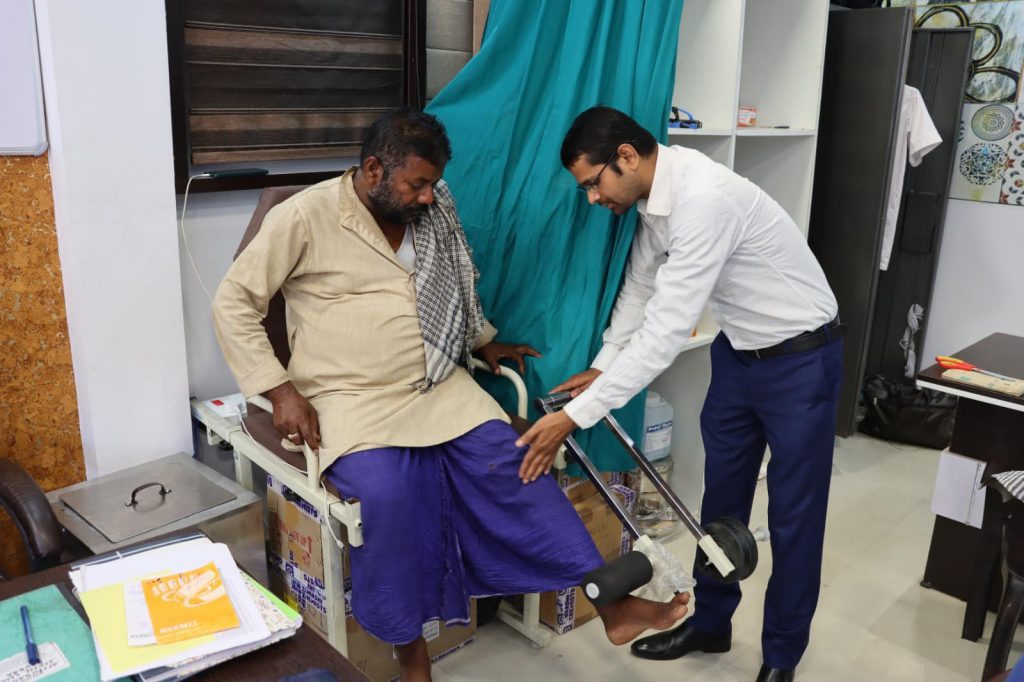
The physiotherapy services are meant to meet the specialized health care needs of the truck drivers as they suffer from several health issues such as bone ailments, back pain, neck pain etc. The clinic aims to cater to up to 50 beneficiaries per day (physiotherapy and general check-ups).
As part of generating awareness on health-related issues, IEC activities are also conducted, including the distribution of pamphlets, display of posters, wall writing and audio-visual aids, etc.
Health Camps
Smile Foundation organizes health camps in remote areas to provide comprehensive healthcare services over a short period. These camps focus on specific health concerns such as eye care, dental care, immunizations, or maternal health. Expert medical professionals and volunteers come together during these camps to offer consultations, treatments, and health education. Health camps play a vital role in addressing the immediate healthcare needs of remote populations.
Smile Foundation, in association with the Govt. of Rajasthan, Sadbhavana Seva Trust and Jain Conference, conducted the Annual Mega Health Camp in Shahpura Block, Bhilwara District, Rajasthan at the beginning of this year, covering a population of 30,000 children, women and senior citizens.
In the two-day camp, more than 250 doctors and paramedical staff from surgery, ophthalmology, gynaecology, dentistry, orthopaedics, medicine, ENT, anaesthesia, radiology, paediatrics and pathology joined us on the ground, making the camp function like one large multi-specialty hospital.Close to 600 surgeries were conducted in 48 hours.
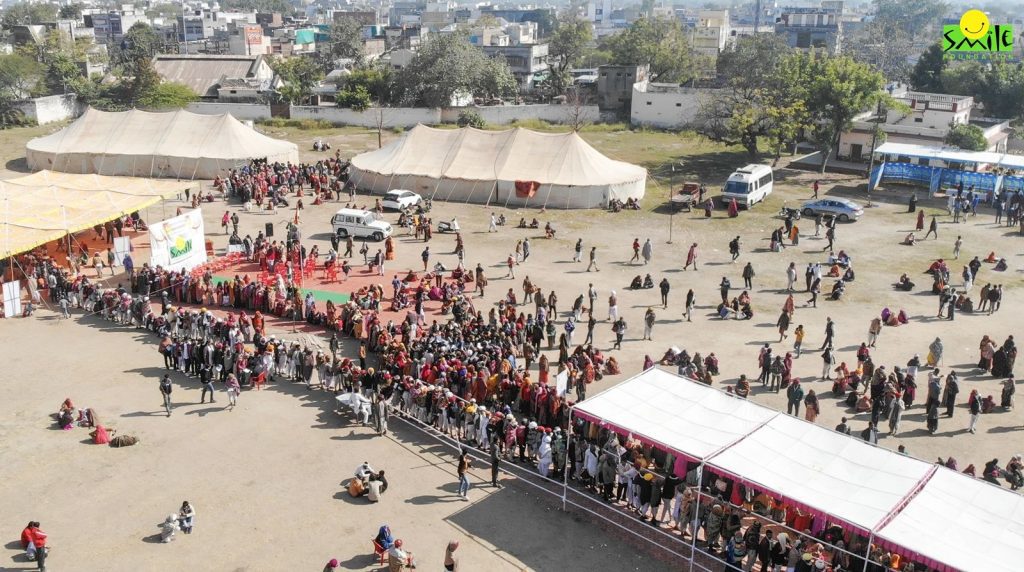
Government Convergence
Smile Foundation collaborates with existing government health centers to enhance their reach and capacity. This involves providing additional medical staff, equipment, training, and support. By strengthening government health centers, we ensure that they can effectively serve remote populations with quality healthcare services. This approach also helps in creating sustainable healthcare infrastructure in these areas.
Each of these initiatives showcases Smile Foundation’s commitment to improving healthcare access for remote populations. By combining mobile healthcare units, telemedicine, static clinics, health camps, and enhancing government health centers, Smile Foundation is effectively addressing the healthcare challenges faced by underserved communities, ultimately contributing to better health outcomes and improved quality of life.



